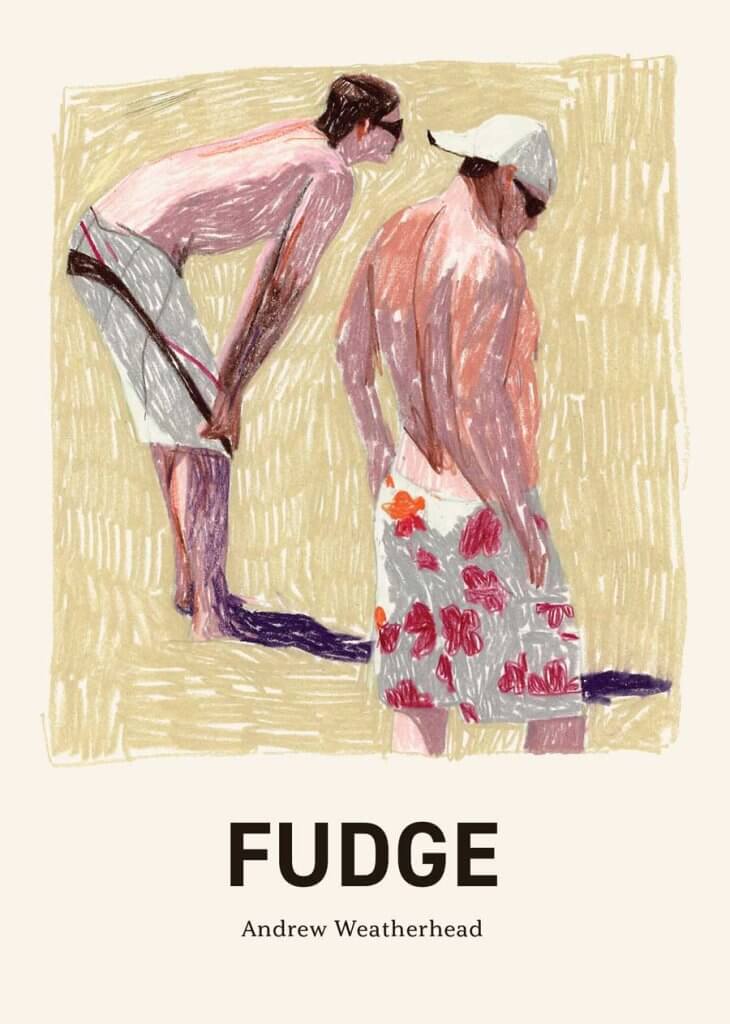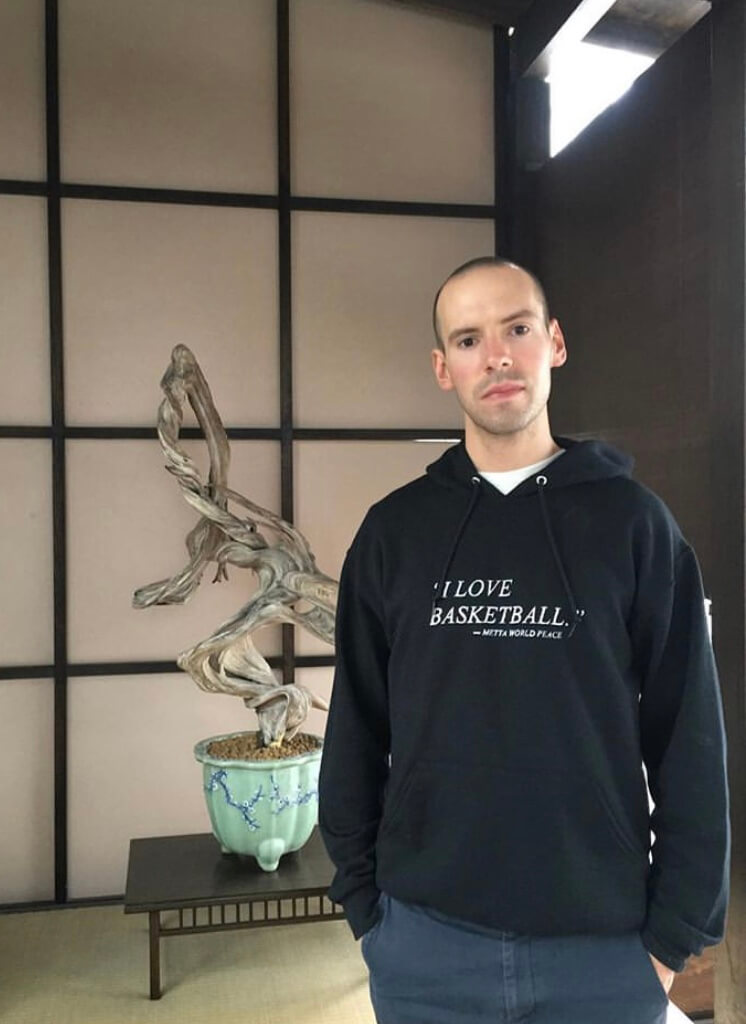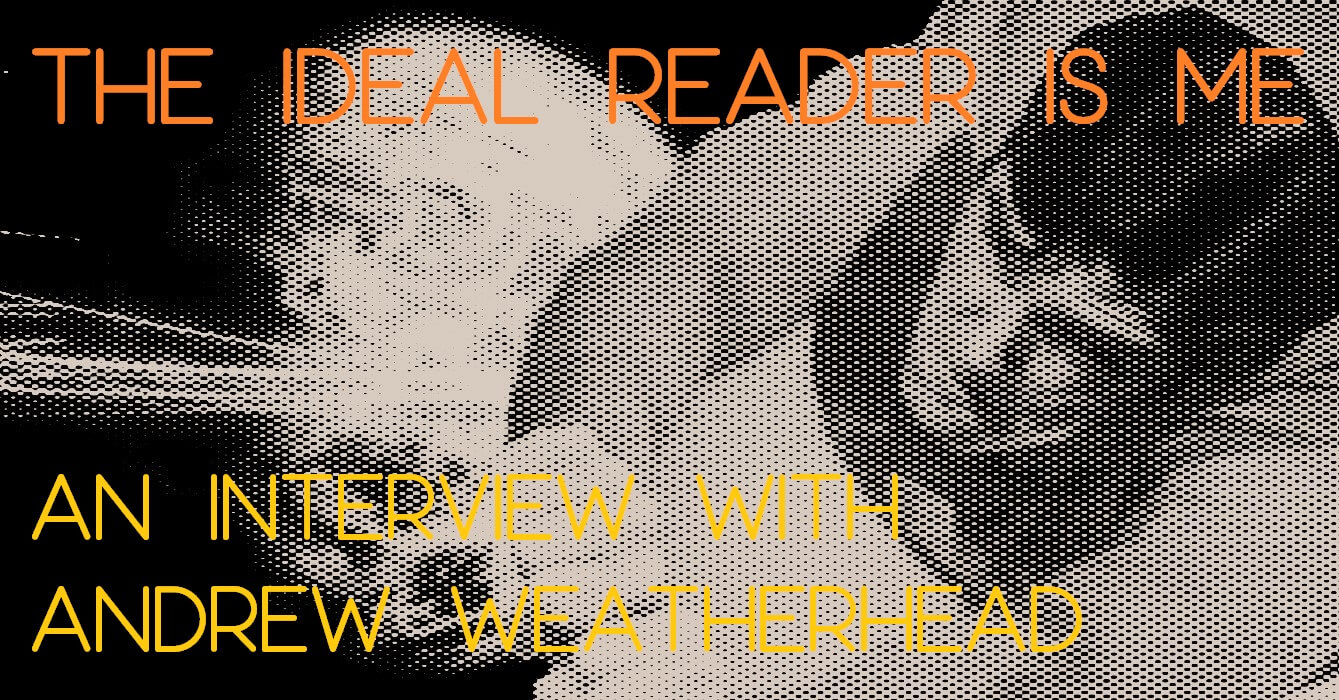 Everyday life has us in a bind, with its inherent inconsistencies and challenges, large and small. As the world, society, whatever, reels from seismic shifts that have never felt so close and yet so remote, Andrew Weatherhead releases a new collection Fudge (Publishing Genius, 2023) into the mix. Trained on the moment, Weatherhead’s words grasp at the vivid fleetingness of existence, and trace myriad juxtapositions. Instead of keeping score, it could be good to take notice. I spoke to Andrew about the book.
Everyday life has us in a bind, with its inherent inconsistencies and challenges, large and small. As the world, society, whatever, reels from seismic shifts that have never felt so close and yet so remote, Andrew Weatherhead releases a new collection Fudge (Publishing Genius, 2023) into the mix. Trained on the moment, Weatherhead’s words grasp at the vivid fleetingness of existence, and trace myriad juxtapositions. Instead of keeping score, it could be good to take notice. I spoke to Andrew about the book.
Rebecca Gransden: How to be in the world. Can you pinpoint a reason or aim for the collection?
Andrew Weatherhead: In many ways, the collection seems to be about waiting. Waiting while on hold with a customer service rep, enduring a Photoshop class, walking aimlessly around a city, staying home during a pandemic, etc. It’s not boredom, exactly. It’s like—let’s see what I can find when I force myself not to look away.
RG: Disorientation. What aspects of life confuse you the most?
AW: There’s a poem in the book that goes:
How do you balance
Pride with humility?
Beats me.
I think about this all the time.
RG: Halting. Is there anything that is guaranteed to paralyze you artistically?
AW: Obligation.
RG: Spirituality, a term with baggage. Is there a spiritual aspect to your life? If so, how do you see that expressed in your work?
AW: Yes. I’m suspicious of organized religion, but I do believe there are phenomena, energies, levels of consciousness, mind states—whatever you want to call it—that can only be understood spiritually. Those little cracks through which we can glimpse the great mystery of life. I try to cultivate these moments and let them into my writing as much as I possibly can. They feel like art to me.
RG: Motion. In one of the Superman films, Superman sets the revolution of the world to spin backwards in order to reverse time. This sequence fascinated me as a kid as it bent science in order to surrender to a higher truth. As the world turns, do you feel it turning?
AW: Absolutely. As a child and as an adult, I’ve often felt vertiginous at the thought of the world spinning beneath me and worry about being flung off into space. In college I had a dream where I “solved” time travel by flying a plane in the opposite direction of the earth’s rotation at exactly the same speed as it was rotating. You wouldn’t go back in time, but you would stay forever in the present moment. At least that’s how the dream went. I’m only realizing now that this was likely inspired by that Superman movie. Great question, thanks for asking this.
RG: Anonymity. What is your relationship to the private and the public? How do you feel about talking about your work?
 AW: Temperamentally, I just want to write. I get so much satisfaction from the creative act, and nothing else comes close. But, with this book, I’m trying to embrace talking about my work as the final step of the work. That the work won’t exist if no one reads it.
AW: Temperamentally, I just want to write. I get so much satisfaction from the creative act, and nothing else comes close. But, with this book, I’m trying to embrace talking about my work as the final step of the work. That the work won’t exist if no one reads it.
I mean, I would love to think the work speaks for itself, but something about our brains or society or whatever seems to require a context for art to import its meaning. I’m trying to internalize this concept rather than judge it and work with and against these expectations in a way that feels fun and authentic.
RG: Mysticism in the everyday. Do you think about those who read your work? If so, does an ideal reader exist in your mind?
AW: Yes, I think about the reader a lot. I want the reader to have a good time. But that ideal reader is me.
I’ll edit even short pieces over months and years, which lets me return to drafts with fresh eyes. I think there’s some scientific justification for this process – something like, you literally become a new person over time since you’re constantly updating your understanding of the world, so that you create a pluralist view of a piece of writing with multiple re-reads. I don’t know how true this is, but I like it.

